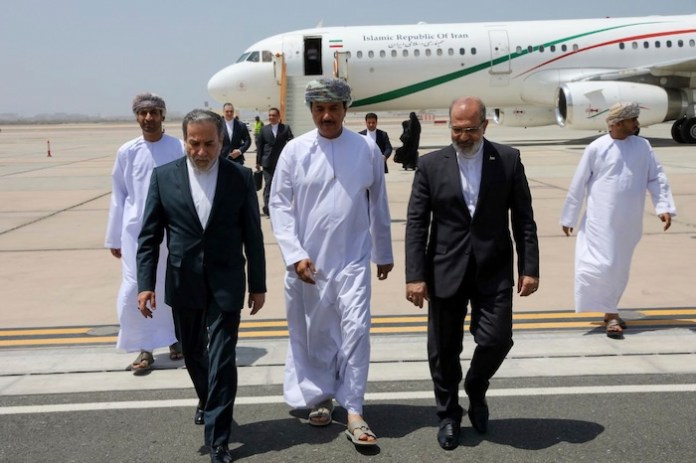Watch: Trump Just Shared the True Story of Why He Hit Iran When He Did, And The Whole Thing Should Be a Movie
The article summarizes a speech by former President Donald Trump at a White House Faith Office luncheon, where he shared a story about his recent decision to strike Iran’s nuclear facilities. Trump described how the media, specifically CNN, inadvertently revealed the timing of the strike, prompting him to consult military advisors General Dan Caine and Secretary of Defense Pete Hegseth, who assured him the operation would succeed despite the leak. However, Trump decided to delay the strike publicly to maintain an element of surprise, ultimately proceeding with the original plan to catch Iran off guard.
The story highlights Trump’s skill as a storyteller, a key factor in his political success. He captivates audiences by portraying adversaries negatively, sharing credit strategically, and using simple yet evocative language, such as calling the F-22 Raptor “the most lovely plane ever built.” The article likens Trump’s storytelling ability to that of notable presidents like Abraham Lincoln and Ronald Reagan, suggesting that this talent has helped him consistently win over public support.
In a speech delivered Monday at the White House Faith Office luncheon, President Donald Trump told a revealing story.
Ostensibly, the story involved the president’s decision to strike Iran’s nuclear facilities last month.
More broadly, however, it illustrated why Trump, against all odds, has nearly always managed to win.
As usual, the establishment media unwittingly played a role, though hardly a glorious one.
“I watched horrible, horrible CNN,” the president said as he began his story. “You know, you have to watch sometimes your opposition. And they are opposition.”
Trump then recalled watching as CNN broadcast details of the strike’s actual scheduled timing. So the president called General Dan “Razin’” Caine and Secretary of Defense Pete Hegseth to seek their advice.
“‘Sir, we’ll be fine,’” Caine and/or Hegseth replied. “‘We’ll blow ’em away.’”
The phrase “We’ll blow ’em away” apparently triggered in Trump’s mind memories of the actual operation. Of course, the president always sounds enthused and grateful when discussing the people and machinery involved in military actions. In this case, Trump waxed impressed over the B-2 bomber and F-22 Raptor, the latter of which the president called “the most beautiful plane ever built.”
So Trump’s top military advisors assured him that CNN’s report would have no material effect on the planned operation.
The president, however, suggested that surprise would better serve his purposes. Caine and Hegseth agreed.
“I said ‘Well then let me cancel it,’” Trump recalled of his decision to publicly announce that he would take no military action against Iran for several weeks. “And let’s make it at a different time.”
The president then described an unspecified meeting at which he privately decided to launch the operation as originally scheduled.
In other words, Trump used CNN’s report to create a ruse that perhaps lulled the Iranians into complacency.
Readers may view the president’s entire speech in the YouTube video below. The relevant segment began around the 43:18 mark.
In the 1997 film “Amistad,” President John Quincy Adams, played by legendary actor Anthony Hopkins, delivered memorable, lawyerly advice.
“When I was an attorney, a long time ago — a young man — I realized after much trial and error that in the courtroom whoever tells the best story wins,” Adams said.
If Hollywood still made watchable movies, Trump’s Iran-strike story would certainly qualify for the big screen.
Moreover, Quincy Adams’ remark provided insight into a quality that has allowed Trump to consistently win.
In short, the president tells the best stories.
For one thing, he knows how to draw in an audience by highlighting the underhanded behavior of a d adversary. In this case, hapless CNN played that unwittingly useful role.
Secondly, Trump often takes credit for himself while simultaneously giving credit to others. This is an underrated tactic. After all, audiences generally find false modesty unpersuasive, but everyone dislikes excessive pride. So Trump avoids both pitfalls by making others’ achievements his own, and vice versa.
Finally, the president applies simple-yet-evocative language in ways that no other public figure ever has. For instance, he called the F-22 Raptor “beautiful.” Recently, of course, he used that same adjective to describe a piece of legislation. And he sounded sincere. Indeed, one senses that he actually does find beauty in such things. What audience does not appreciate honest admiration of something or someone worthy?
Someday, an honest writer or filmmaker might produce an intriguing character sketch of the 45th and 47th president. To qualify as complete, that sketch will have to depict Trump, much like former Presidents Abraham Lincoln and Ronald Reagan, as a master storyteller.
Advertise with The Western Journal and reach millions of highly engaged readers, while supporting our work. Advertise Today.
" Conservative News Daily does not always share or support the views and opinions expressed here; they are just those of the writer."


